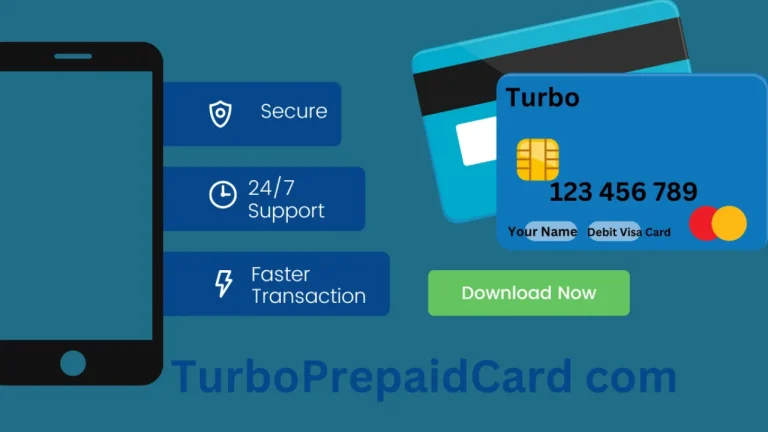Understanding the Wowza Gradle Plugin

In the world of streaming applications, efficiency in development and deployment is crucial. The Wowza Gradle Plugin serves as an essential tool for developers working with the Wowza Streaming Engine. This plugin integrates seamlessly with Gradle, a popular build automation tool, to streamline tasks such as building, testing, and deploying Wowza modules. With its automated workflows, this plugin eliminates manual processes, enabling faster delivery of high-quality streaming solutions.
What is the Wowza Gradle Plugin?
The Wowza Gradle Plugin is designed specifically for projects that rely on the Wowza Streaming Engine. It automates repetitive tasks, such as compiling, packaging, and deploying Wowza modules, allowing developers to focus on coding. This tool leverages Gradle’s powerful build system to simplify workflows, making it an ideal choice for creating scalable and reliable streaming applications. By reducing human error and saving time, this plugin plays a vital role in modern streaming development environments.
How the Wowza Gradle Plugin Works
At its core, the Wowza Gradle Plugin uses Gradle’s capabilities to handle the entire lifecycle of a Wowza module. It integrates the development environment with the Wowza Streaming Engine, ensuring compatibility and smooth execution. Developers add the plugin to their build.gradle file and configure it to specify the necessary settings, such as module dependencies and server paths. With just a few commands, the plugin compiles and deploys the application, making the process straightforward.
A significant advantage of this is its ability to manage dependencies efficiently. This ensures that required libraries and modules are automatically included, avoiding version conflicts and other issues. Additionally, developers can customize build scripts to suit project-specific needs, providing flexibility in how Wowza modules are built and tested.
Benefits of Using the Wowza Gradle Plugin
The Wowza Gradle Plugin offers multiple benefits that enhance productivity and reliability. One of its primary advantages is automation. By automating build and deployment processes, it reduces the time spent on manual tasks, allowing developers to focus on innovation. Automation also minimizes human error, resulting in more stable applications.
Another benefit is scalability. This supports complex projects with multiple modules, making it suitable for large-scale streaming applications. Its integration with Gradle ensures that even advanced workflows can be handled efficiently. Developers also appreciate its ability to streamline testing, as the plugin facilitates the execution of test cases to ensure the application meets quality standards.
The plugin’s support for customizable scripts is another highlight. Developers can tailor the build process to meet unique requirements, such as adding custom parameters or specifying server configurations. This flexibility makes the Wowza Gradle Plugin a valuable tool for projects with diverse needs.
Setting Up the Wowza Gradle Plugin
Getting started with this requires installing Gradle and configuring the plugin in your project. Here’s a simple breakdown of the process:
| Step | Description |
|---|---|
| Install Gradle | Ensure Gradle (version 5.0 or higher) is installed on your system. |
| Add Plugin | Add the Wowza Gradle Plugin to your build.gradle file. |
| Configure Settings | Specify necessary settings like module dependencies and server path. |
| Run Tasks | Use Gradle commands to execute build, test, and deployment tasks. |
The configuration file is where you define the specifics of your project. For instance, you can include the following in your build.gradle file:
groovyCopy codeplugins {
id 'com.wowza.gradle.plugin' version '1.0.0' // Replace with the correct version
}
Once configured, the plugin simplifies the entire workflow, from building the module to deploying it on the Wowza Streaming Engine.
Why Choose the Wowza Gradle Plugin?
The Wowza Gradle Plugin is a game-changer for developers working with the Wowza Streaming Engine. Its integration with Gradle provides a powerful framework for managing builds, dependencies, and deployments. Unlike manual processes, this plugin ensures consistency and efficiency, which are critical in high-demand streaming environments. For organizations looking to optimize their streaming workflows, this is an invaluable asset.
Another reason to choose this plugin is its focus on reliability. By automating key tasks, it ensures that applications are built and deployed with minimal errors. This is particularly important in streaming, where downtime or bugs can significantly impact user experience. This helps developers deliver applications that are not only functional but also robust.
Use Cases for the Wowza Gradle Plugin
The Wowza Gradle Plugin is ideal for a wide range of streaming applications. Here are some examples:
- Live Streaming Platforms: Automate the deployment of modules for live event streaming, ensuring reliability and quick updates.
- Video-on-Demand (VoD) Services: Manage scalable streaming engines for hosting a library of pre-recorded videos.
- Real-Time Interactive Applications: Ensure seamless deployment of modules that handle real-time interactions, such as webinars or virtual classrooms.
Also Read: Coomersu Modern Philosophy of Balance and Sustainability
Customization and Flexibility
One of the standout features of this is its flexibility. Developers can create custom build scripts to address specific requirements. For example, if a project requires unique server configurations or additional testing steps, these can be easily incorporated into the build process. This adaptability makes the plugin suitable for a wide range of projects, from simple streaming applications to complex, multi-module solutions.
Custom scripts also enable better resource management. Developers can optimize builds for faster execution, reducing the time spent waiting for tasks to complete. This efficiency is especially beneficial in large teams where multiple developers are working on the same project.
Advanced Features
The Wowza Gradle Plugin doesn’t just stop at basic automation—it offers advanced functionalities that make it even more powerful for developers. For example:
Also Read: Discover Best Wireless Deals with My WirelessCoupons .com
- Hot Deployment: This feature allows developers to make changes to their Wowza modules and deploy them without restarting the server. It speeds up the development cycle and enables quicker testing.
- Integration with CI/CD Pipelines: The plugin works seamlessly with popular CI/CD tools like Jenkins and GitHub Actions. By including Gradle tasks in your pipeline, you can automate builds and deployments with every code commit or release.
- Support for Custom Tasks: Developers can define their custom Gradle tasks to handle unique project requirements. These might include custom logging, specific testing scenarios, or additional cleanup processes after deployment.
- Version Control Integration: By incorporating Gradle’s dependency management, the plugin allows for easy rollback to previous versions of your Wowza modules, ensuring smooth updates and minimizing risks.
Conclusion
The Wowza Gradle Plugin is a must-have tool for developers working with the Wowza Streaming Engine. By automating essential tasks and providing a robust framework for builds and deployments, this plugin enhances productivity and ensures reliability. Its integration with Gradle allows for efficient dependency management and customization, making it suitable for projects of all sizes. Whether you’re building a simple streaming application or a complex solution, this simplifies the process and helps deliver high-quality results.
For any developer seeking to streamline their workflow and improve the quality of their streaming applications, this is a reliable and efficient choice. With its powerful features and easy-to-use configuration, it’s a tool that every Wowza developer should consider adding to their toolkit.
Also Read: www designmode24. com Hub for Design and Lifestyle Ideas






